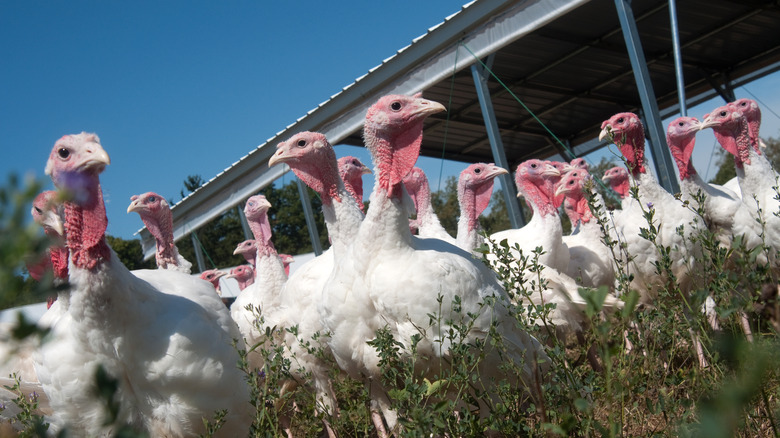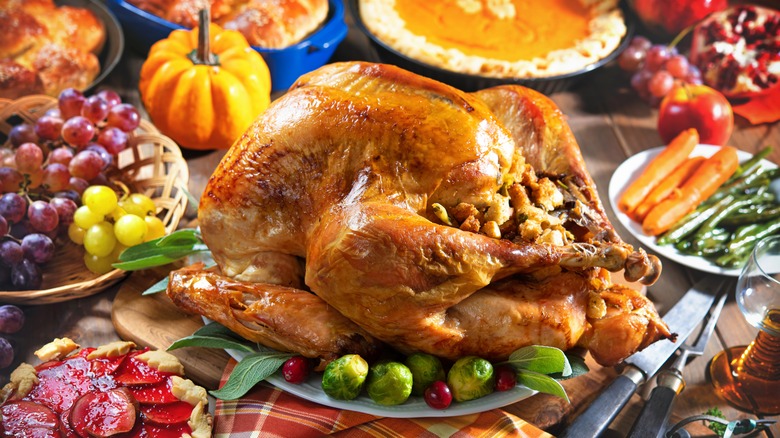Why Hormel Foods Is Worried About Bird Flu
Pumpkin spice lattes are brewing and holiday merch has hit store shelves before you've even had a chance to retire your bathing suit for the season. Thanksgiving menus are already percolating under the shadow of ongoing food inflation, and now, turkey producers and shoppers have to contend with another threat to our holiday spread and wallets. According to Food Business News, a new highly pathogenic avian influenza (HPAI) outbreak is spreading across the U.S. and has Hormel and its customers concerned about how it will affect this year's turkey stock.
Hormel Foods Corp owns the Jennie-O Turkey Store and was already dealt with an HPAI outbreak in early 2022 that reduced its third quarter turkey volumes by 20%. The highly infectious virus has been wreaking havoc on flocks of all feathers, including egg-laying chickens devastated by infections that caused the price of eggs to skyrocket. But despite the challenges posed by rampant infections in the spring, The Jennie-O team managed the outbreak well and kept the supply chain functioning at affected farms. Jennie-O even managed to increase its grocery product unit sales by 25% while segment profit fell by 5%.
The company attributed the decrease to the absorption of inflated production costs that it hoped would abate in the coming months. But now, the latest round of HPAI has started appearing in California, Indiana, North Dakota, and Minnesota and recently showed up in a Hormel Foods Corp flock, reigniting concerns about how it will impact the next few quarters.
Avian flu will impact Hormel into 2023
As wild birds follow seasonal migration patterns, they're also spreading the highly pathogenic avian influenza (HPAI) that the Wall Street Journal links to the death of nearly 40 million birds. Hormel's plate was already filled with this spring's outbreak, price hikes on bird feed, increased production costs, and strained export business due to COVID-19 restrictions in China that caused flock losses and hiked meat prices. And as Thanksgiving approaches, analysts are concerned that further losses will cause sticker shock for consumers.
Hormel is well-aware of the impact that the latest HPAI wave might have on fourth quarter production and sales and expects volume to be down 30% (per Food Business News). Recently identified cases of infected birds in its supply chain are expected to negatively affect production volume through the first quarter of the fiscal year into 2023.
According to The New York Post, the cost of turkey is already up 57% compared to the five-year average. As grocery store meat prices reach record highs, turkey breast meat will run you $6.50 per pound (In 2020, the same product was under $2). Turkey production is estimated to be 7% lower going into the fall than it was last year — just in time for demand to reach its annual high point.

